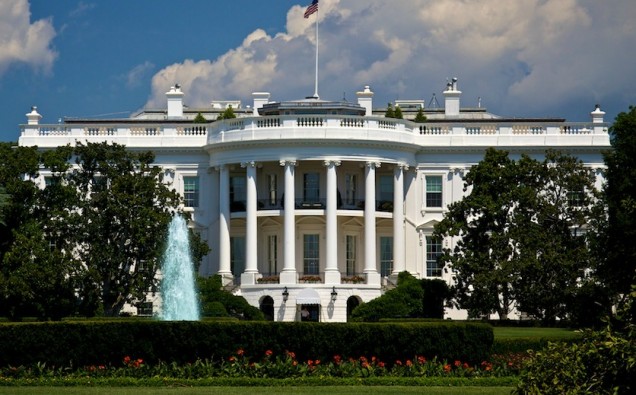
A reinvigorated push for Afghan stability and Islamabad-New Delhi tensions will be on the agenda, when President Barack Obama hosts Prime Minister Nawaz Sharif Thursday for talks, which are also to figure bilateral cooperation towards economic growth,nuclear security and strategic stability in the region.
Sharif’s engagements in Washington that include a series of meetings with American leaders including Vice President Joseph Biden, Secretary John Kerry, Energy Secretary, Treasury Secretary reflect the high degree of importance the United States assigns to having a close and wide-ranging relationship with nuclear-armed Pakistan, for both bilateral promise and regional stability.
“The visit will highlight the enduring nature of the U.S.-Pakistan relationship and provide an opportunity to strengthen our cooperation on issues of mutual concern, including economic growth, trade and investment, clean energy, global health, climate change, nuclear security, counterterrorism, and regional stability.” White House Press Secretary Josh Earnest said Monday of the October 22 meeting.
The White House conversations take place amidst improved U.S-Pakistan ties, which fluctuated during the height of the 9/11-sparked Afghan war. But 14 years after the terrorist attacks, and billions of dollars spent on Afghan reconstruction and development, the landlocked country on Pakistan’s western border still remains as fragile as ever.
To Islamabad’s east, Pakistan-India peace faces a lingering stalemate, due to tensions over UN-recognized Jammu and Kashmir disputed region and Prime Minister Narendera Modi’s hostile policy toward Pakistan.
Afghan progress toward stability has been a top priority for the Obama White House but Kabul’s economic outlook and security scenario offer little cause for comfort.
Only last week, President Obama altered the American troops drawdown plans to maintain around 10,000 forces as part of an Afghan training and support mission through 2016 – a decision that follows the Taliban takeover of the Kunduz city. Although, the U.S. and Afghan forces have been able to beat back the Taliban insurgents through use of force, their militancy lurks around many parts of the country.
Under a previous plan, Obama would have pulled out all American troops before leaving the White House in January 2017. Iraq’s failure – due partly to U.S.-backed Nouri al Maliki’s failure at nation building, Syrian imbroglio, regional sectarian tensions and Washington’sown scaled down engagement, has already set back Obama’s foreign policy goals to successfully conclude both the Afghan and Iraq wars launched by his predecessor George W Bush.
Washington believes Islamabad could help with reviving reconciliation talks between Kabul and the Taliban, which this summer broke down recently after Pakistan-hosted first round, attended by the United States and China as observers.
Meanwhile, both the United States and Pakistan have downplayed reports of striking a civilian nuclear deal during the visit. Pakistan says its nuclear capability aims only at deterring Indian aggression and officials have rejected the notion that Islamabad might limit its nuclear development in return for such a deal.
Foreign Secretary Aizaz Ahmed Chaudhry also articulated the Pakistani nuclear doctrine, saying its tactical nuclear weapons are to deter Indian aggression under New Delhi’s Cold Start strategy. Both the U.S. and Pakistani officials have ruled out the possibility of striking a quick deal on civilian nuclear deal, although they say talks on security issues are a regular feature. In the regional perspective, if a deal between the U.S. and Islamabad comes to a fruition, it would follow 2008 U.S.-India civilian nuclear technology.
On Monday, Chauhdry, and Pakistan’s ambassador to the United States Jalil Abbas Jilani both spoke of the vital importance of the U.S.-Pakistani relationship at the bilateral, regional and broader international levels. The two officials also emphasized Pakistan’s commitment to regional peace, security, and economic connectivity.













